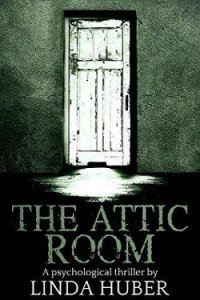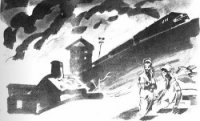Go Set a Watchman - Lee Harper (мир книг txt) 📗
“Good morning, daughter of Nereus!” said her uncle, as he kissed her on the cheek. One of Dr. Finch’s concessions to the twentieth century was a telephone. He held his niece at arm’s length and regarded her with amused interest.
“Home for nineteen hours and you’ve already indulged your predilection for ablutionary excesses, hah! A classic example of Watsonian Behaviorism—think I’ll write you up and send you to the AMA Journal.”
“Hush, you old quack,” whispered Jean Louise between clenched teeth. “I’m coming to see you this afternoon.”
“You and Hank mollockin’ around in the river—hah!—ought to be ashamed of yourselves—disgrace to the family—have fun?”
Sunday School was beginning, and Dr. Finch bowed her in the door: “Your guilty lover’s waitin’ within,” he said.
Jean Louise gave her uncle a look which withered him not at all and marched into the church with as much dignity as she could muster. She smiled and greeted the Maycomb Methodists, and in her old classroom she settled herself by the window and slept with her eyes open through the lesson, as was her custom.
7
THERE’S NOTHING LIKE a blood-curdling hymn to make you feel at home, thought Jean Louise. Any sense of isolation she may have had withered and died in the presence of some two hundred sinners earnestly requesting to be plunged beneath a red, redeeming flood. While offering to the Lord the results of Mr. Cowper’s hallucination, or declaring it was Love that lifted her, Jean Louise shared the warmness that prevails among diverse individuals who find themselves in the same boat for one hour each week.
She was sitting beside her aunt in the middle pew on the right side of the auditorium; her father and Dr. Finch sat side by side on the left, third row from the front. Why they did it was a mystery to her, but they had sat there together ever since Dr. Finch returned to Maycomb. Nobody would take them for brothers, she thought. It’s hard to believe he’s ten years older than Uncle Jack.
Atticus Finch looked like his mother; Alexandra and John Hale Finch looked like their father. Atticus was a head taller than his brother, his face was broad and open with a straight nose and wide thin mouth, but something about the three marked them as kin. Uncle Jack and Atticus are getting white in the same places and their eyes are alike, thought Jean Louise: that’s what it is. She was correct. All the Finches had straight incisive eyebrows and heavy-lidded eyes; when they looked slant-wise, up, or straight ahead, a disinterested observer would catch a glimpse of what Maycomb called Family Resemblance.
Her meditations were interrupted by Henry Clinton. He had passed one collection plate down the pew behind her, and while waiting for its mate to return via the row she was sitting on, he winked openly and solemnly at her. Alexandra saw him and looked blue murder. Henry and his fellow usher walked up the center aisle and stood reverently in front of the altar.
Immediately after collection, Maycomb Methodists sang what they called the Doxology in lieu of the minister praying over the collection plate to spare him the rigors involved in inventing yet another prayer, since by that time he had uttered three healthy invocations. From the time of Jean Louise’s earliest ecclesiastical recollection, Maycomb had sung the Doxology in one way and in one way only:
Praise—God—from—whom—all—blessings—flow
,
a rendition as much a tradition of Southern Methodism as Pounding the Preacher. That Sunday, Jean Louise and the congregation were in all innocence clearing their throats to drag it accordingly when out of a cloudless sky Mrs. Clyde Haskins crashed down on the organ
PraiseGodfromwhomall Bles—sings—Flo—w
PraiseHimallcreatures He—re Bee—low
PraiseHimaboveye Heav’n—ly Ho—st
PraiseFatherSonand Ho—ly Gho—st!
In the confusion that followed, if the Archbishop of Canterbury had materialized in full regalia Jean Louise would not have been in the least surprised: the congregation had failed to notice any change in Mrs. Haskins’s lifelong interpretation, and they intoned the Doxology to its bitter end as they had been reared to do, while Mrs. Haskins romped madly ahead like something out of Salisbury Cathedral.
Jean Louise’s first thought was that Herbert Jemson had lost his mind. Herbert Jemson had been music director of the Maycomb Methodist Church for as long as she could remember. He was a big, good man with a soft baritone, who ruled with easy tact a choir of repressed soloists, and who had an unerring memory for the favorite hymns of District Superintendents. In the sundry church wars that were a living part of Maycomb Methodism, Herbert could be counted on as the one person to keep his head, talk sense, and reconcile the more primitive elements of the congregation with the Young Turk faction. He had devoted thirty years’ spare time to his church, and his church had recently rewarded him with a trip to a Methodist music camp in South Carolina.
Jean Louise’s second impulse was to blame it on the minister. He was a young man, a Mr. Stone by name, with what Dr. Finch called the greatest talent for dullness he had ever seen in a man on the near side of fifty. There was nothing whatever wrong with Mr. Stone, except that he possessed all the necessary qualifications for a certified public accountant: he did not like people, he was quick with numbers, he had no sense of humor, and he was butt-headed.
Because Maycomb’s church had for years not been large enough for a good minister but too big for a mediocre one, Maycomb was delighted when, at the last Church Conference, the authorities decided to send its Methodists an energetic young one. But after less than a year the young minister had impressed his congregation to a degree that moved Dr. Finch to observe absently and audibly one Sunday: “We asked for bread and they gave us a Stone.”
Mr. Stone had long been suspected of liberal tendencies; he was too friendly, some thought, with his Yankee brethren; he had recently emerged partially damaged from a controversy over the Apostles’ Creed; and worst of all, he was thought to be ambitious. Jean Louise was building up an airtight case against him when she remembered Mr. Stone was tone deaf.
Unruffled by Herbert Jemson’s breach of allegiance, because he had not heard it, Mr. Stone rose and walked to the pulpit with Bible in hand. He opened it and said, “My text for today is taken from the twenty-first chapter of Isaiah, verse six:
For thus hath the Lord said unto me
,
Go, set a watchman, let him declare what he seeth.”
Jean Louise made a sincere effort to listen to what Mr. Stone’s watchman saw, but in spite of her efforts to quell it, she felt amusement turning into indignant displeasure and she stared straight at Herbert Jemson throughout the service. How dare he change it? Was he trying to lead them back to the Mother Church? Had she allowed reason to rule, she would have realized that Herbert Jemson was Methodist of the whole cloth: he was notoriously short on theology and a mile long on good works.
The Doxology’s gone, they’ll be having incense next—orthodoxy’s my doxy. Did Uncle Jack say that or was it one of his old bishops? She looked across the aisle toward him and saw the sharp edge of his profile: he’s in a snit, she thought.
Mr. Stone droned … a Christian can rid himself of the frustrations of modern living by … coming to Family Night every Wednesday and bringing a covered dish … abide with you now and forevermore, Amen.
Mr. Stone had pronounced the benediction and was on his way to the front door when she went down the aisle to corner Herbert, who had remained behind to shut the windows. Dr. Finch was faster on the draw:




